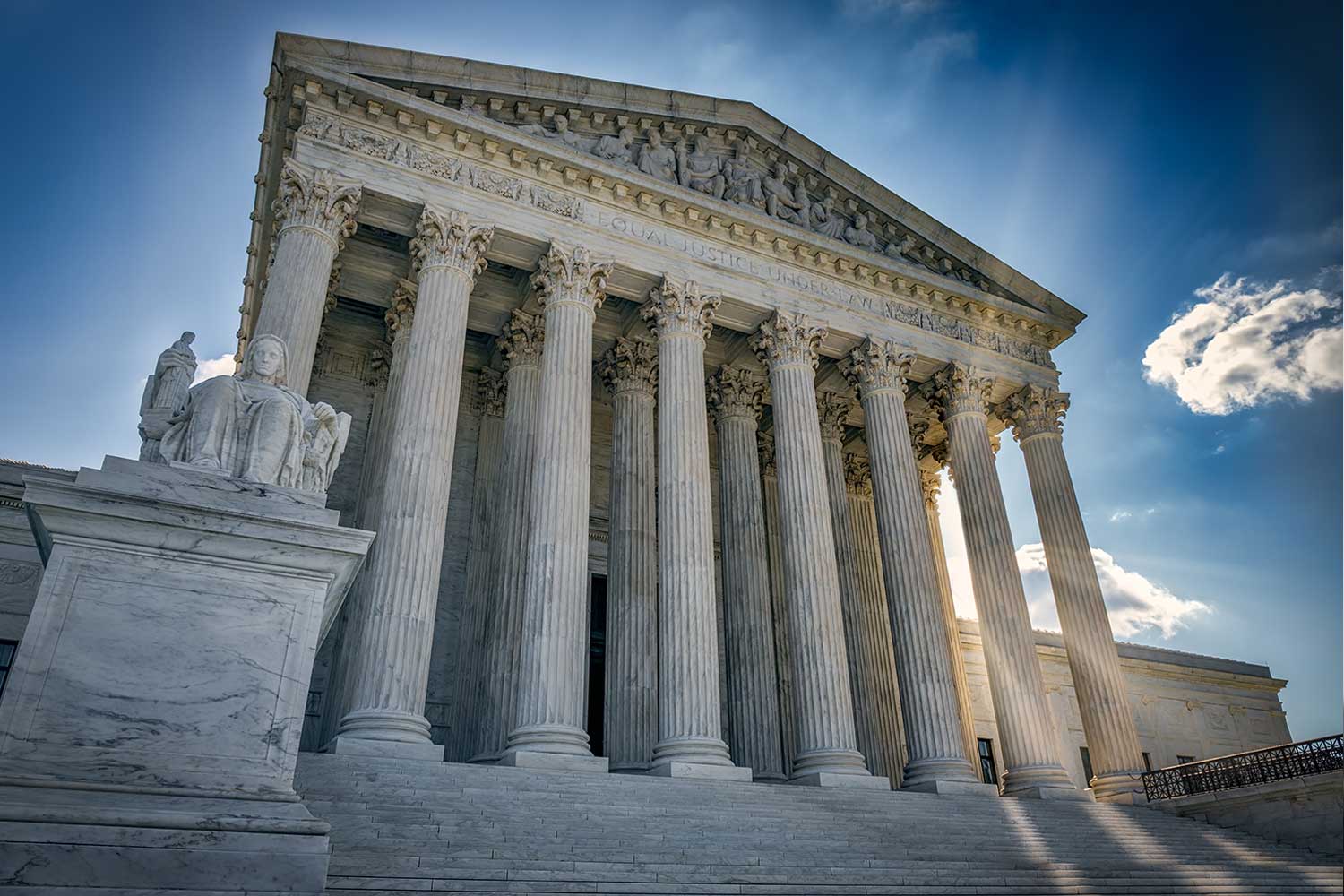Navigating the ever-changing COVID-19 safety rules has been a compliance nightmare for employers.
Now, hopefully, there will be some certainty for larger employers and those in the healthcare industry as the legality of the federal government’s COVID-19 vaccine and “vaccinate or test” mandates will finally be decided by the U.S. Supreme Court.
At issue are two separate orders:
- The Occupational Safety and Health Administration (OSHA) Emergency Temporary Standard (ETS), which applies to employers with over 100 workers.
- The Center for Medicare & Medicaid Services’ (CMS) healthcare mandate, which is specific to the healthcare industry.
While OSHA’s ETS gives employers the option to test unvaccinated employees for COVID-19, the CMS mandate does not allow for a testing option and requires a vaccination for all covered workers.
OSHA ETS
While prior courts had issued a nationwide stay on the enforcement of the OSHA ETS, on December 17, the Sixth Circuit Court of Appeals reversed course and dissolved the stay, clearing OSHA to enforce the ETS across the country.
In upholding the ETS, the court stated “…it is difficult to imagine what more OSHA could do or rely on to justify that workers face a grave danger in the workplace…” — noting that OSHA is not required to demonstrate “scientific certainty” in issuing the ETS.
In response, OSHA issued a new timeline for compliance:
To account for any uncertainty created by the stay, OSHA is exercising enforcement discretion with respect to the compliance dates of the ETS. To provide employers with sufficient time to come into compliance, OSHA will not issue citations for noncompliance with any requirements of the ETS before January 10. [It] will not issue citations for noncompliance with the standard’s testing requirements before February 9, so long as an employer is exercising reasonable, good-faith efforts to come into compliance with the standard.
In the 21 states with OSHA-authorized state plans, January 24 is the deadline to adopt the ETS or otherwise ensure that their state plans are as effective as the federal standard.
CMS Healthcare Vaccine Mandate
In early November, CMS mandated that all employees of healthcare facilities participating in Medicare and Medicaid must be fully vaccinated by January 4.
Multiple lawsuits were filed attempting to stop the mandate, with no less than three courts weighing in on the subject — resulting in the order being stayed in certain states, but still enforceable in the following 26 states:
California, Colorado, Connecticut, Delaware, District of Columbia, Florida, Hawaii, Illinois, Maine, Maryland, Massachusetts, Michigan, Minnesota, Nevada, New Jersey, New Mexico, New York, North Carolina, Oregon, Pennsylvania, Rhode Island, Tennessee, Vermont, Virginia, Washington, and Wisconsin.
It’s important to note that employers with more than 100 employees would still need to comply with the OSHA ETS mandates — even in states where the stay remains in effect.
On December 16, the Supreme Court agreed to review both the OSHA ETS and the CMS vaccine mandate, but did not stay the lower court orders. Oral arguments in the case are scheduled to occur on January 7.
Hopefully, with a decision issued shortly thereafter, employers will have certainty — although it seems unlikely the decision will arrive before the January 10 deadline for compliance with the OSHA ETS.
What Should Covered Employers Do Now?
Employers are required to demonstrate reasonable good-faith efforts to comply with the OSHA ETS between now and January 10 — and by January 4 if they are in a state covered by the CMS order. To demonstrate good faith, consider taking the following steps:
- Read the OSHA ETS or CMS order. The OSHA website offers a webinar and other valuable resources for your COVID-19 Compliance Officer.
- Create a secure record-keeping system to record vaccination status and test results.
- Draft applicable policies and procedures regarding the vaccine requirement and the process for requesting exemptions. OSHA has sample policy templates on its website.
- Survey and record the vaccination status of your workforce.
- If only covered by the OSHA ETS, determine whether your nonprofit will mandate vaccines for all or give employees the option to conduct testing instead of vaccination.
- Prepare for testing: Even if you decide to mandate vaccination for all, your nonprofit may have workers with approved religious or medical exemptions that will need to be tested.
- Accommodation requests: Develop best practices to handle religious and medical vaccine exemption accommodation requests. In addition to testing, adopt protocols for those granted exemption accommodation.
For informational purposes. The information on these topics is accurate as of the date of publication, but is changing rapidly. Readers should verify that the information is still accurate.





